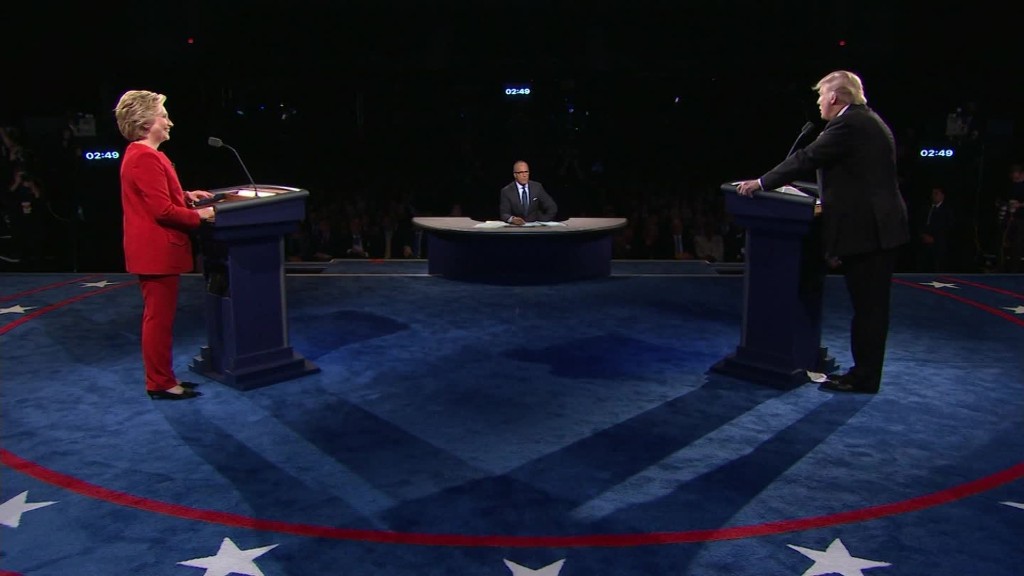
When Donald Trump wanted to prove, despite the evidence, that he never supported the Iraq War, he turned to Sean Hannity for help.
"I spoke to Sean Hannity, which, everybody refuses to call Sean Hannity. I had numerous conversations with Sean Hannity at Fox. And Sean Hannity said -- and he called me the other day, and I spoke to him about it -- he said you were totally against the war, because he was for the war," Trump said at Monday night's presidential debate.
Hannity, a self-described Trump supporter on a cable news network that more than half of the country doesn't trust, may have been the worst person Trump could have called upon to boost his credibility with the voters he needs. But the fact that he did so fits into a larger issue for Trump, who has spent months living in a cocoon of favorable conservative media despite a pressing need to expand his support beyond this base.
Immediately after Monday night's debate, Trump gave his first interview to none other than Hannity. The next morning he spoke to "Fox & Friends." He did not give interviews to CNN, NBC, ABC or CBS, nor any of the nation's leading newspapers. (He did speak briefly to reporters from multiple outlets, including CNN, in the post-debate "spin room" after he gave a full interview to Hannity.)
Hannity has a primetime show on Fox News and is among the most influential voices on right-wing talk radio. Both of those things make him invaluable during a Republican primary, and they also make interviews with him good for revving up Trump's base. But he doesn't hold the same sway with the majority of general election voters, and because of the extent of his support for Trump, without some independent verification, the political journalists vetting Trump's claims are unlikely to treat him as a credible source.
Related: The problem with Donald Trump's 'we won every poll' claim
For months, Hannity has been an unapologetic Trump booster. He acknowledges he is not a journalist, and instead uses both his television program and radio show to praise Trump and attack his critics. Last week, Hannity even appeared in one the campaign's promotional videos, in which he explained all the reasons he was supporting the candidate.
Hannity's pro-Trump agenda isn't lost on people at Fox News. As Hannity's post-debate interview with Hannity started, Megyn Kelly made what some viewers saw as a thinly veiled jab at her colleague: "We've got Trump speaking to our own Sean Hannity," she told viewers. "We'll see whether he speaks to the journalists in this room after that interview."
In an era of choose-your-own-adventure media, when conservative and liberal sources publish radically opposite headlines about the day's political events, there is no doubt that many of Trump's supporters will see sufficient evidence for Trump's claims in his private conversations with Hannity.
But with 42 days until Election Day, Trump and Clinton are fighting for undecided and unmotivated voters, not passionate members of their own base. Hannity can't help him there.


